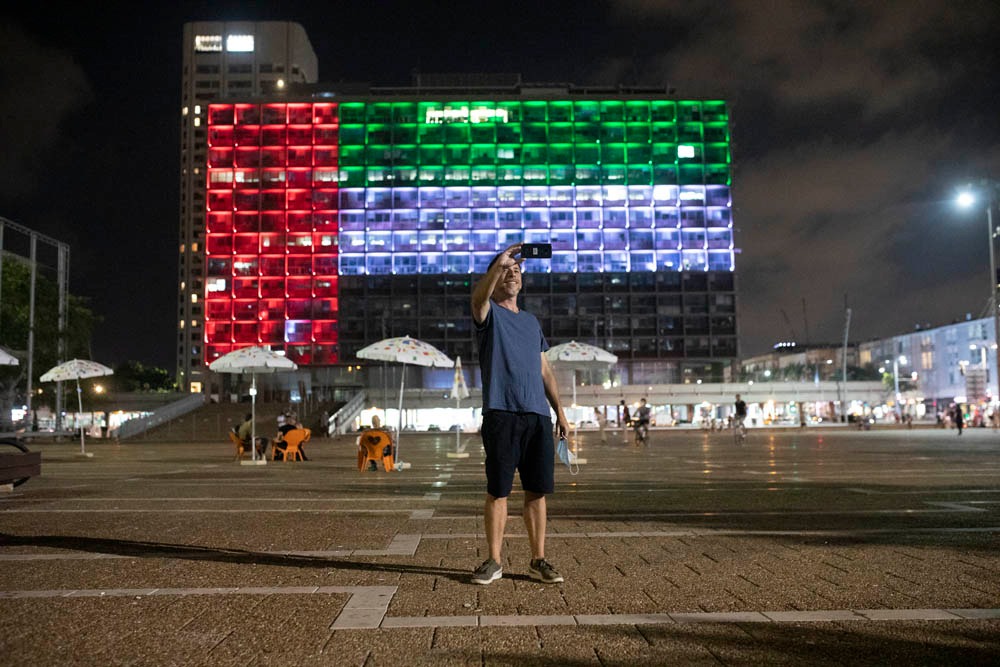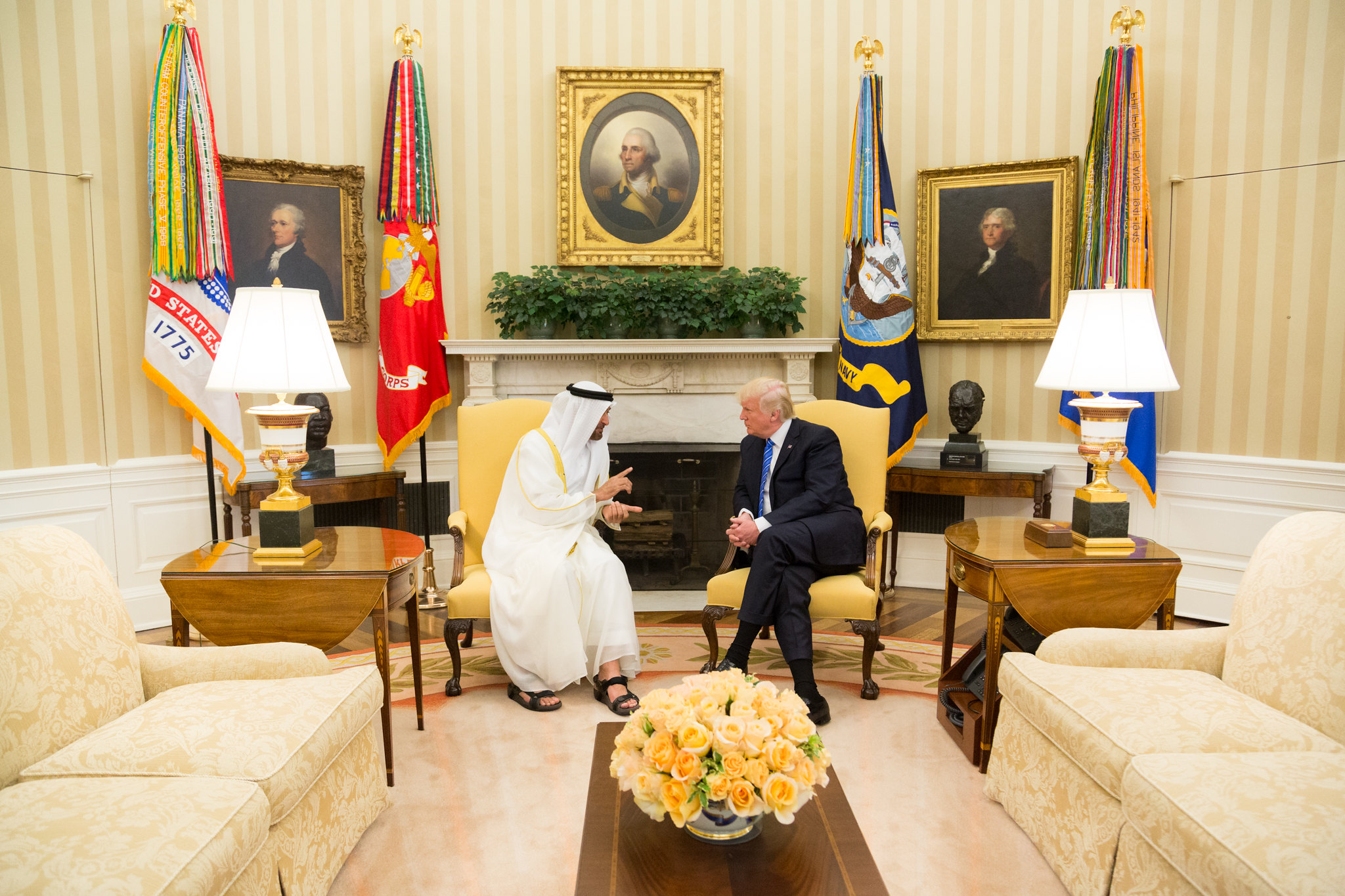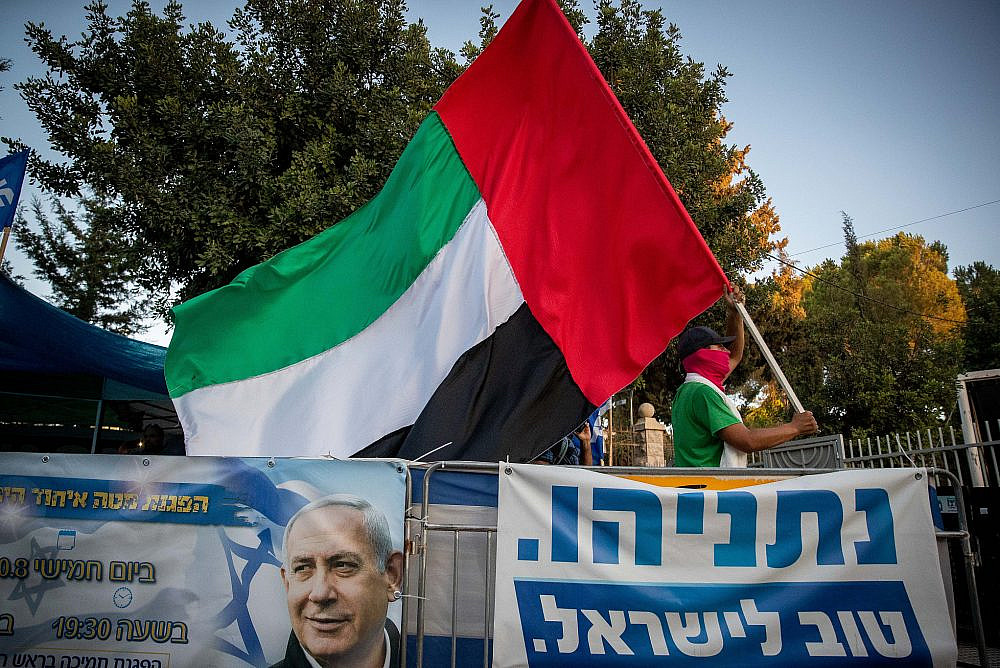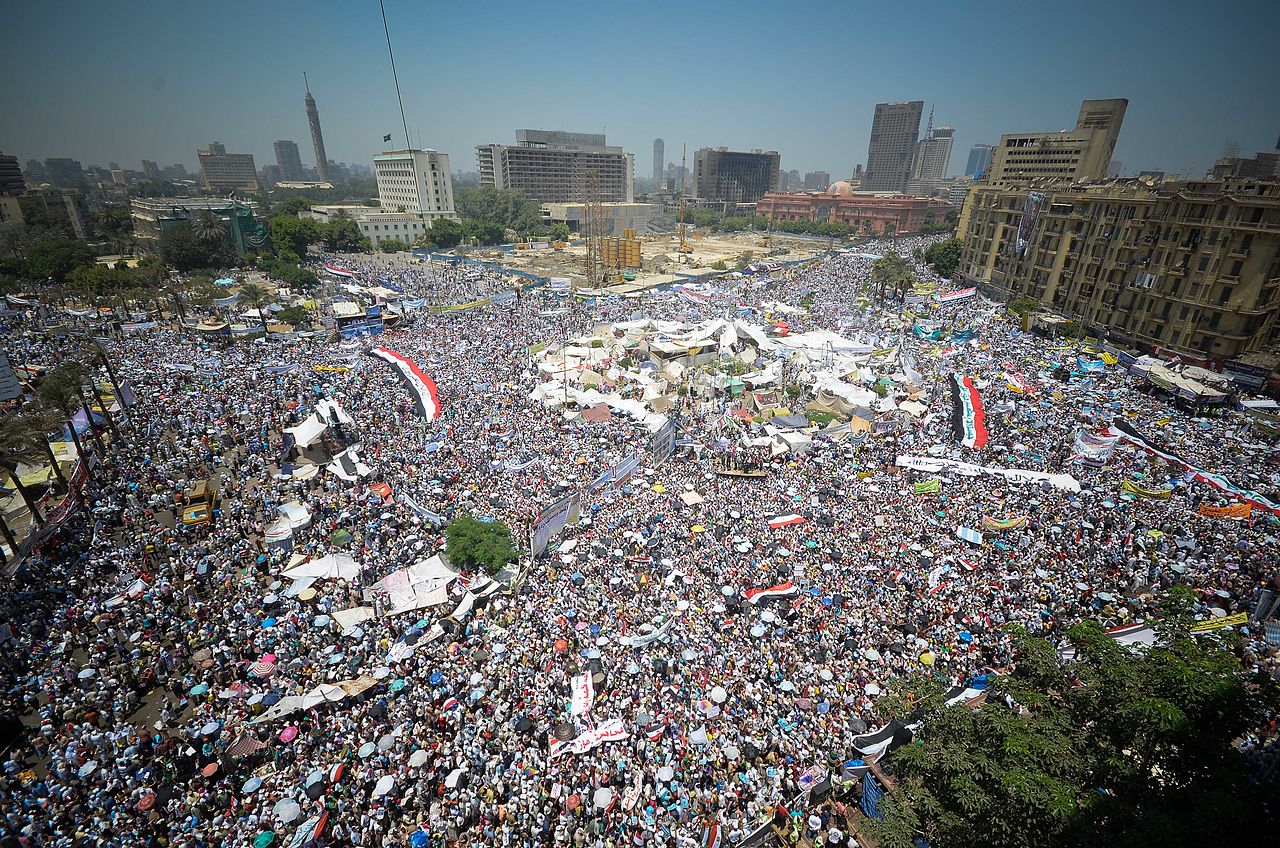Since the announcement of the U.S.-brokered “Abraham Accord” between Israel and the United Arab Emirates two weeks ago, state officials in all three countries have portrayed it as an unprecedented step toward bringing “peace” to the region.
The agreement stipulates that the UAE will recognize and normalize relations with Israel — the first Arab state to formally do so since Egypt in 1978 and Jordan in 1994 — in exchange for the “suspension” of Israeli annexation plans in the occupied West Bank. This means that the two countries will open up trade, facilitate cultural ties, and increase military and security coordination with each other.
Despite the showmanship around the accord, these relations are actually not new; there has long been under-the-table normalization, to various degrees, between many Arab states and Israel. However, this act of official normalization, which breaks the ranks of the Arab League, threatens not only to sideline the Palestinian cause but also to have severe repercussions for Arab societies across the region.
Until now, the act of official, public normalization has always hinged upon progress in ending the Israeli-Palestinian conflict. For instance, it was only after the 1993 Oslo Accords that Arab regimes began opening up trade offices and other relations with Israeli institutions, under the pretext that they were encouraging the peace process. When the negotiations had clearly failed by the time of the Second Intifada in 2000, many Arab states withdrew their normalizing overtures. The 2002 Arab Peace Initiative, spearheaded by Saudi Arabia, reiterated Arab commitments to the peace process by asserting that normalization would be contingent on the creation of a Palestinian state.

Today, that policy has been thrown out the window. Despite being tangential to the conflict and never having been at war with Israel, the UAE has gone against the standard set by the Arab League by delivering normalization without any meaningful concessions from Israel. It essentially frittered away one of the few remaining bargaining chips left on the Arab side and paved the way for other countries in its axis — including, potentially, Bahrain and Sudan — to do the same.
Israel can claim to the international community that it has given up something important by “suspending” annexation (even as Netanyahu insists the opposite to his constituents). But this assertion is laughable: annexation is not a date on the calendar but an ongoing process that continues unfettered, de facto if not de jure. So what exactly have the Emiratis achieved?
A convergence of anti-democratic forces
In reality, the question of Palestinian rights and self-determination is a side note in this political charade and was never the objective of either party.
The connotation of the accord’s title, named after the prophet Abraham, attempts to portray the agreement as a landmark resolution to a wider religious conflict rather than a cynical political deal. This, in part, is a message designed to appeal to the Trump administration’s Evangelical supporters in the run-up to the 2020 election, and to suggest that the UAE has some historical legitimacy for its actions, which it in fact sorely lacks. Netanyahu, for his part, could claim a foreign policy victory in front of his domestic audience, who have been embittered by his mishandling of the economy and the coronavirus crisis.

For the Emiratis, the accord is a means of scoring points with the United States in its competition with other Gulf regimes, all of whom are jockeying for the favor of the Trump administration — especially as Trump’s probability of winning re-election in November gets slimmer by the day. This, in turn, feeds into the UAE’s principal foreign policy goal of establishing itself as a regional power, to project its influence and autocratic vision beyond its borders.
The UAE has positioned itself in the past decade as a counterrevolutionary force, intent on preventing the spirit of the Arab Spring from taking hold in major Arab countries. A key fear of such mass mobilization — in addition to threatening the authoritarian political order — is that it could lead to a rise of political Islamist groups. The Gulf’s tensions with Iran and Turkey, including against their involvement in the affairs of Arab states, fuels this alarm. This has led the Emiratis to intervene in a number of states experiencing political turmoil, such as Sudan and Yemen, to aid their regimes in repressing protestors.
In this context, the UAE is seeking allies that can share expertise, sell surveillance tools, and ramp up its ability to carry out repression domestically and regionally — and it has found that ally in Israel. Like the UAE, Israel is averse to democracy in the region because Arab publics have demonstrated their ability to push for transformative change, while fearing that Islamist groups that might fill ensuing political vacuums would bolster one of its major enemies, Hamas, through material and political support.
Moreover, Arab publics have demonstrated a consistent commitment to the Palestinian cause — something their authoritarian leaders pay lip-service to but, in practice, have routinely undermined. The most recent polling data of 2017-2018 from the Arab Opinion Index, conducted by the Arab Center for Research and Policy Studies (where I am a researcher), shows that a full 87 percent of Arab respondents, from across 12 different countries, do not agree to their governments normalizing with Israel. A vast majority (77 percent) also believe the Palestinian cause is the cause of all Arabs, and are committed to Palestinian self-determination and ending the Israeli occupation.
That public opposition has surfaced following the UAE’s announcement. In spite of government pressure on citizens not to speak out about the agreement, and in spite of the ongoing economic and health crises that plague many countries, activists from Tunisia to Bahrain have spoken out against the agreement, with Oman’s civil society vocally rejecting their government’s message of congratulations to the UAE.
Activists in all the Gulf countries are also organizing a united campaign against normalization, even as the political environment becomes ever more restrictive; they have begun by holding brainstorming sessions and broadcasting educational panels on the threats of normalization, and are in the process of developing a consistent strategy for the entire Gulf.
Cut the cord on Oslo
These Arab activists know that the UAE-Israel Accord, which is predicated on sidelining Palestinians, is not a meaningful step for peace in the region. Israel still has to contend with the millions of Palestinians living in the West Bank, Gaza, and Israel whom they continue to oppress, kill, and occupy. “Peace” initiatives with irrelevant despots does nothing to resolve Israel’s fundamental problem at home.

As for Palestinians, this news is indeed a setback. Palestinians are more marginalized today, and their allies in Arab publics more repressed, than ever before — and with increasing Israeli-Gulf cooperation, that repression will only increase.
Signs of criminalization of pro-Palestinian activism, a phenomenon witnessed primarily in Europe and the United States, are now appearing in the region. For instance, the UAE government sent messages to Emirati WhatsApp numbers threatening action against anyone who criticizes the accord, and has publicly reiterated that commitment on Twitter by likening criticism of the agreement to “antisemitism,” which Emirati citizens and residents are instructed to report to the authorities.
Yet perhaps this moment is an opportunity for the Palestinian leadership to finally cut the cord on the Oslo process, to re-imagine a future outside the bounds of the nonviable two-state solution. And perhaps it is an opportunity for Arab allies to reengage more seriously and innovatively with the Palestinian issue, as both a moral and strategic imperative.
The machinations of the Trump administration and its authoritarian allies present a possibility to reengage with Palestinian society, mobilize Palestinians, and re-energize the Palestine Liberation Organization — not as a stagnant body tangential to the caretaker PA government, but as a full liberation movement. Palestinians cannot expect authoritarian regimes completely unrepresentative of their people and their interests — including their own — to do anything but normalize with their oppressors. They must instead take this as a chance to upend the status quo altogether.


